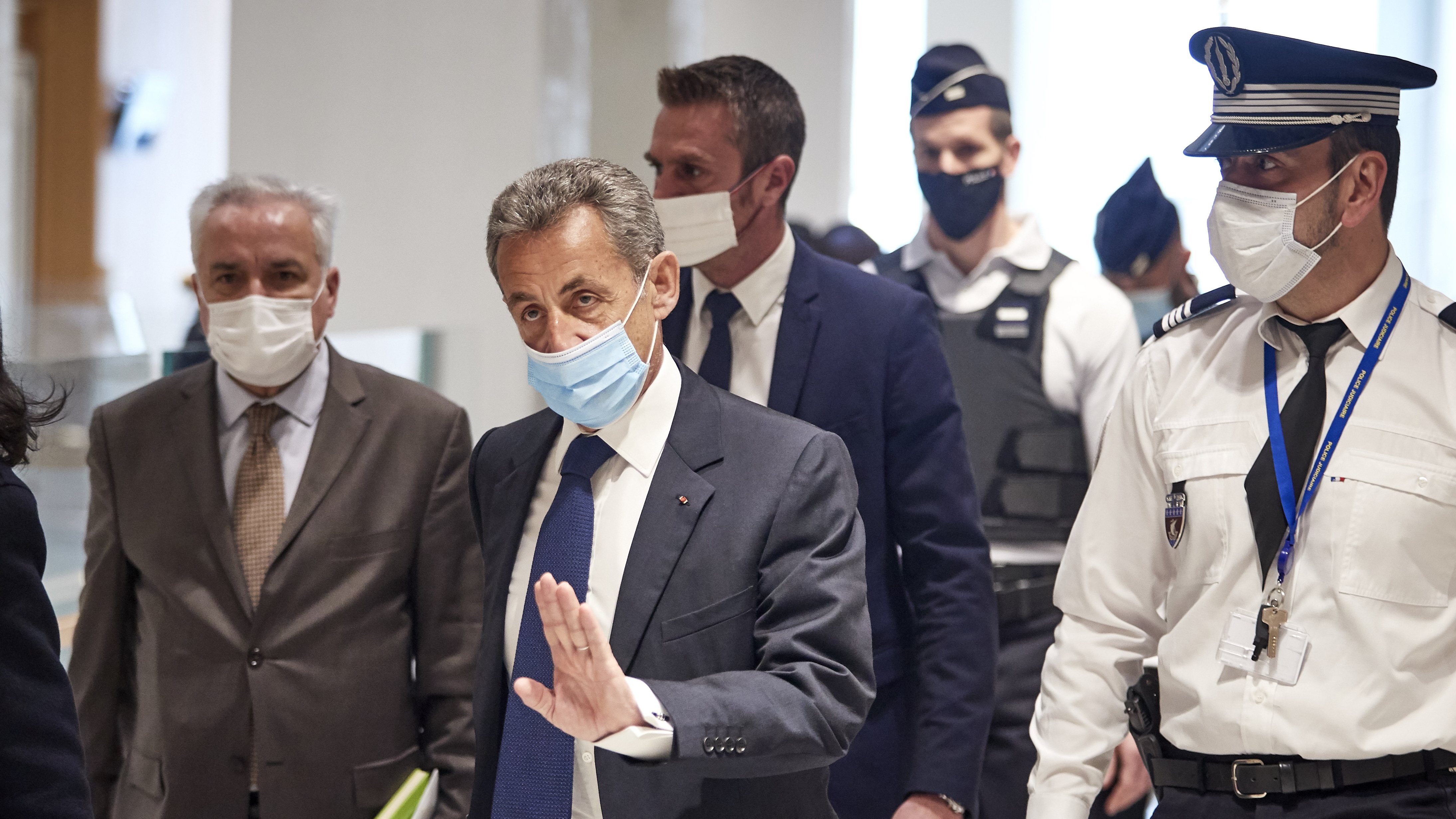The rise and fall of Nicolas Sarkozy
Former French president sentenced to jail after being convicted of attempted bribery

A free daily email with the biggest news stories of the day – and the best features from TheWeek.com
You are now subscribed
Your newsletter sign-up was successful
Yesterday marked a day of mixed fortunes for Nicolas Sarkozy. On a positive note, France’s decision to roll out the Oxford vaccine to older people means the 66-year-old could soon get a jab.
But while the former French president will be able to get inoculated against Covid, his freedom is at threat. Sarkozy was sentenced to three years in jail, two of them suspended, by a court in Paris on Monday, after being convicted of corruption charges in a legal landmark for post-war France.
He is the first former French president to be handed a custodial sentence - which he has vowed to appeal.
The Week
Escape your echo chamber. Get the facts behind the news, plus analysis from multiple perspectives.

Sign up for The Week's Free Newsletters
From our morning news briefing to a weekly Good News Newsletter, get the best of The Week delivered directly to your inbox.
From our morning news briefing to a weekly Good News Newsletter, get the best of The Week delivered directly to your inbox.
How did Sarkozy land up in court?
Sarkozy was president of France between 2007 and 2012. He became known for his tough line on immigration and his role in the fallout of the financial crisis, yet was nicknamed “bling bling” by critics for his ostentatious style of leadership.
After leaving office, his fortunes took a major downturn when he was accused of trying to bribe a judge by “suggesting he could secure a prestigious job for him in return for information about a separate case”, the BBC reports.
A court heard last year how Sarkozy instructed his lawyer, Thierry Herzog, to offer senior magistrate Gilbert Azibert a “cushy job” on the Côte d’Azur in return for information on an investigation into whether he had received donations from the L’Oréal heiress Liliane Bettencourt, The Guardian says.
A free daily email with the biggest news stories of the day – and the best features from TheWeek.com
The case, which gripped the nation, centred on phone conversations between Sarkozy and Herzog that were taped by police in 2014. Sarkozy used the alias “Paul Bismuth” during the calls and was heard by police telling Herzog: “I'll get him promoted, I'll help him.”
What happens next?
As the BBC’s Paris correspondent Hugh Schofield says: “Sarkozy is no stranger to legal investigations - since he left the presidency he has been the object of half a dozen - but up until now his record sheet has been clean. There was plenty of mud, but none of it stuck.”
However, half an hour in a courtroom in Paris’s new Palais de Justice yesterday “changed all that”, leaving Sarkozy scrambling to launch an appeal against his prison sentence.
The former president will remain free during the appeal process, which could take years. And even if Sarkozy’s appeal is unsuccessful, “he could serve a year at home with an electronic tag, rather than go to jail”, according to the broadcaster.
On the other hand, he also faces further, separate legal problems. Sarkozy is due to go on trial in March over accusations that he overspent during his unsuccessful 2012 campaign.
The ex-leader is also being investigated over allegations that he received funding for his 2007 campaign from Muammar Gaddafi, who was then in power in Libya. Sarkozy denies both allegations.
Despite the various scandals, Sarkozy remains popular among right-wingers in France. His memoirs The Time of Storms was a bestseller last year and depicts him as the “innocent, long-suffering victim of a vendetta by left-wing investigating judges”, The Times says.
Chas Newkey-Burden has been part of The Week Digital team for more than a decade and a journalist for 25 years, starting out on the irreverent football weekly 90 Minutes, before moving to lifestyle magazines Loaded and Attitude. He was a columnist for The Big Issue and landed a world exclusive with David Beckham that became the weekly magazine’s bestselling issue. He now writes regularly for The Guardian, The Telegraph, The Independent, Metro, FourFourTwo and the i new site. He is also the author of a number of non-fiction books.